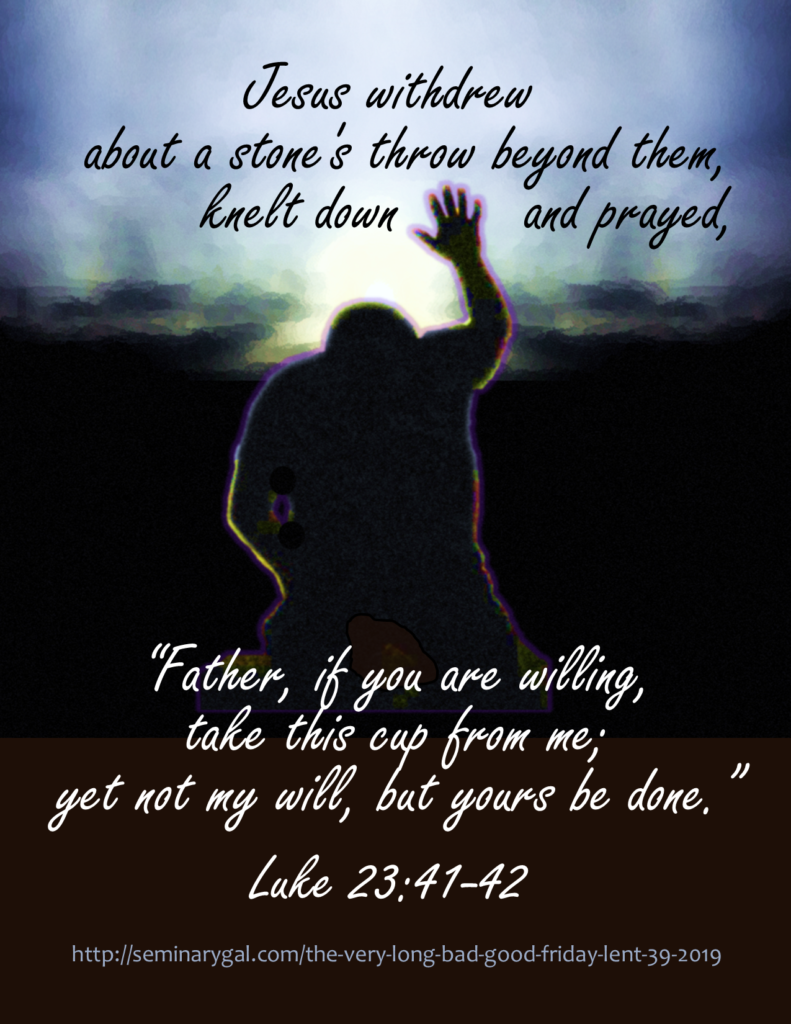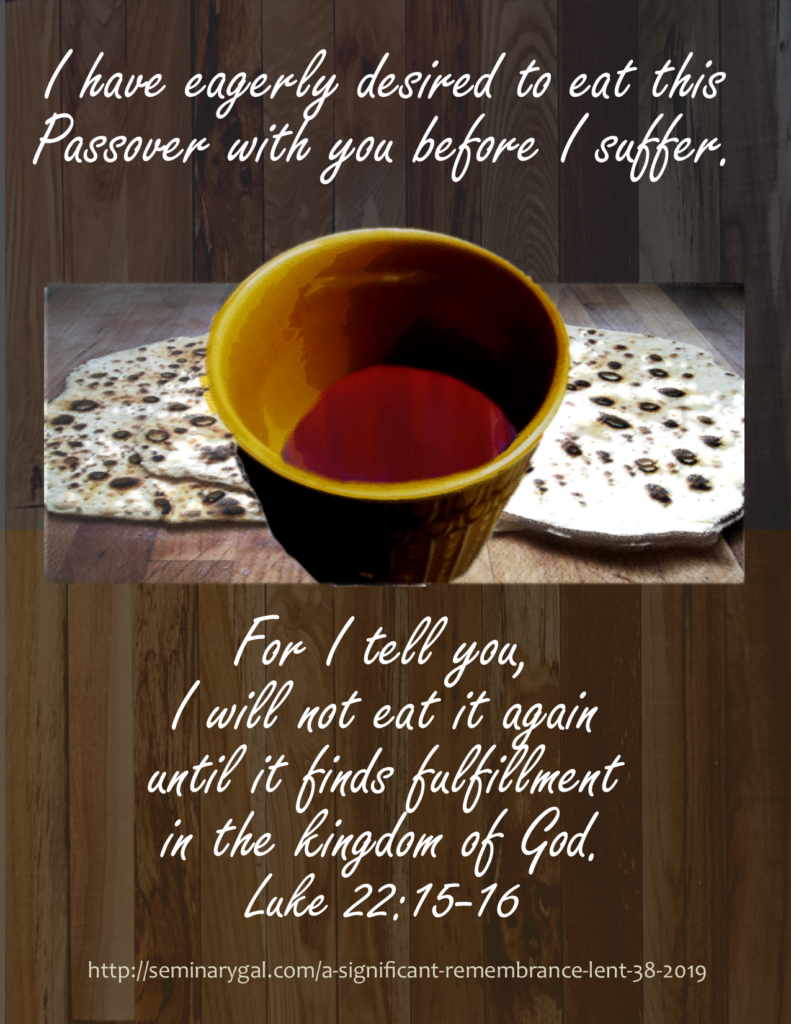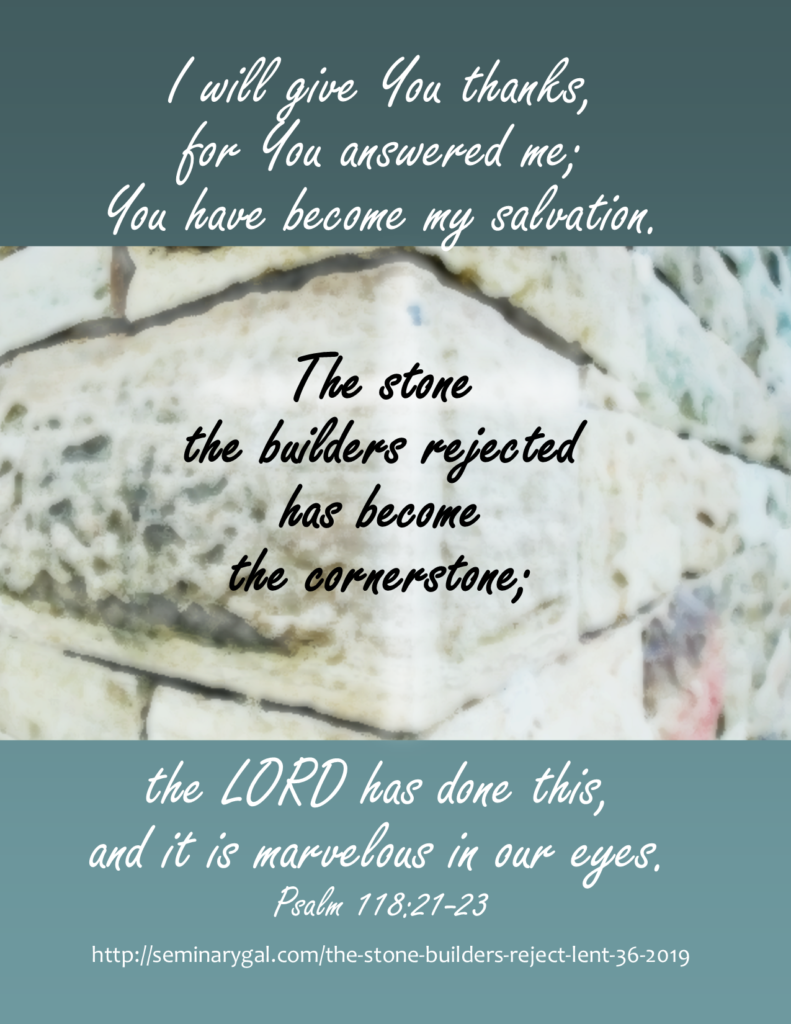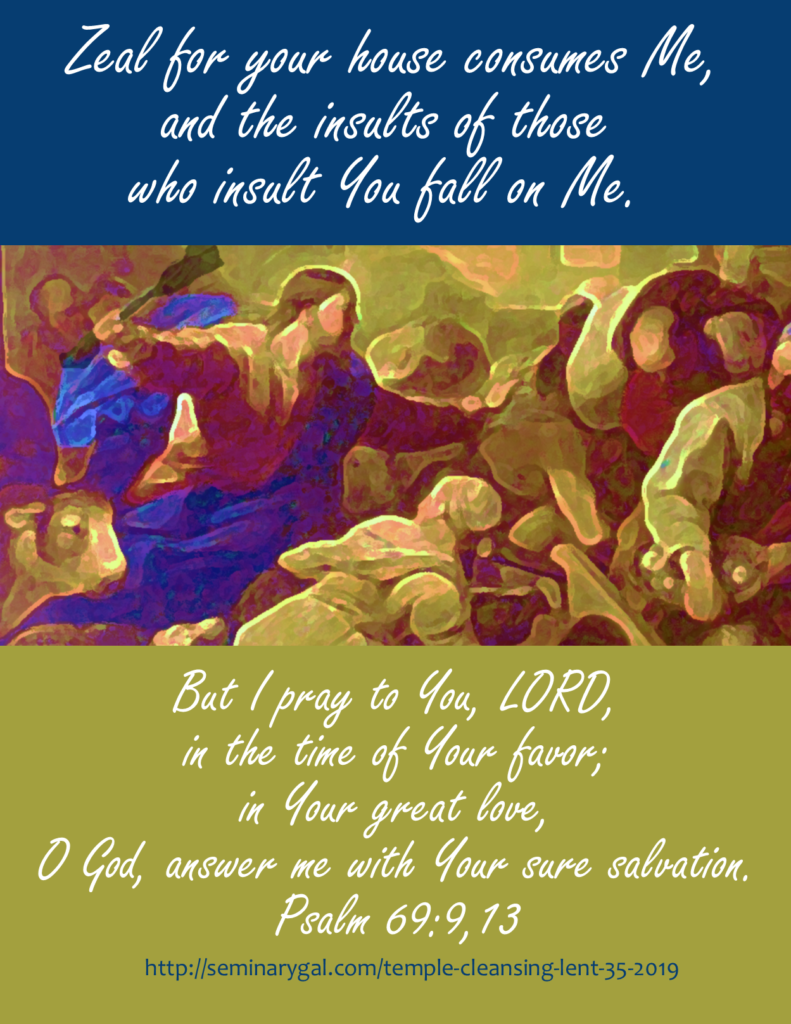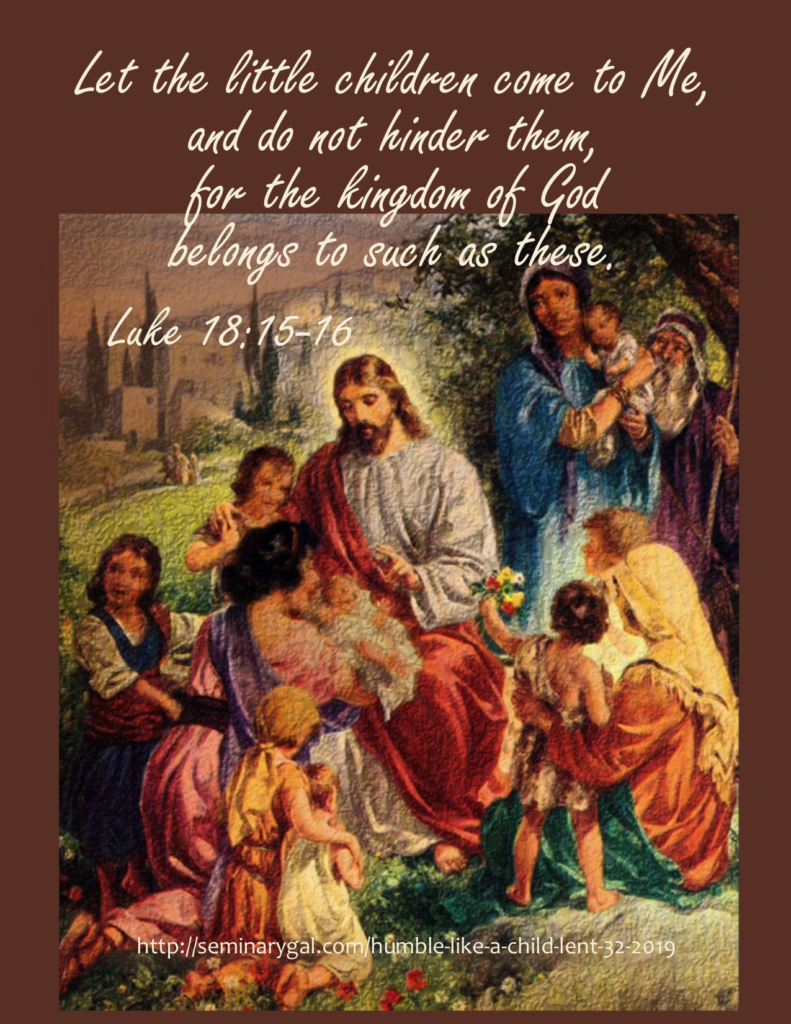The stone which had been rolled in front of the tomb remained as if frozen in time. Jesus was dead. He’d even said, “It is finished.” The grave was silent and seemingly satisfied. There is no “More to the Easter Story” for Jesus to tell because He’s dead. He’s buried. This stark reality of death gives us sober time to reflect while Jesus is cold, dead, in the grave at this moment on the Church calendar. “The people of Jerusalem and their rulers did not recognize Jesus, yet in condemning Him they fulfilled the words of the prophets that are read every Sabbath…”
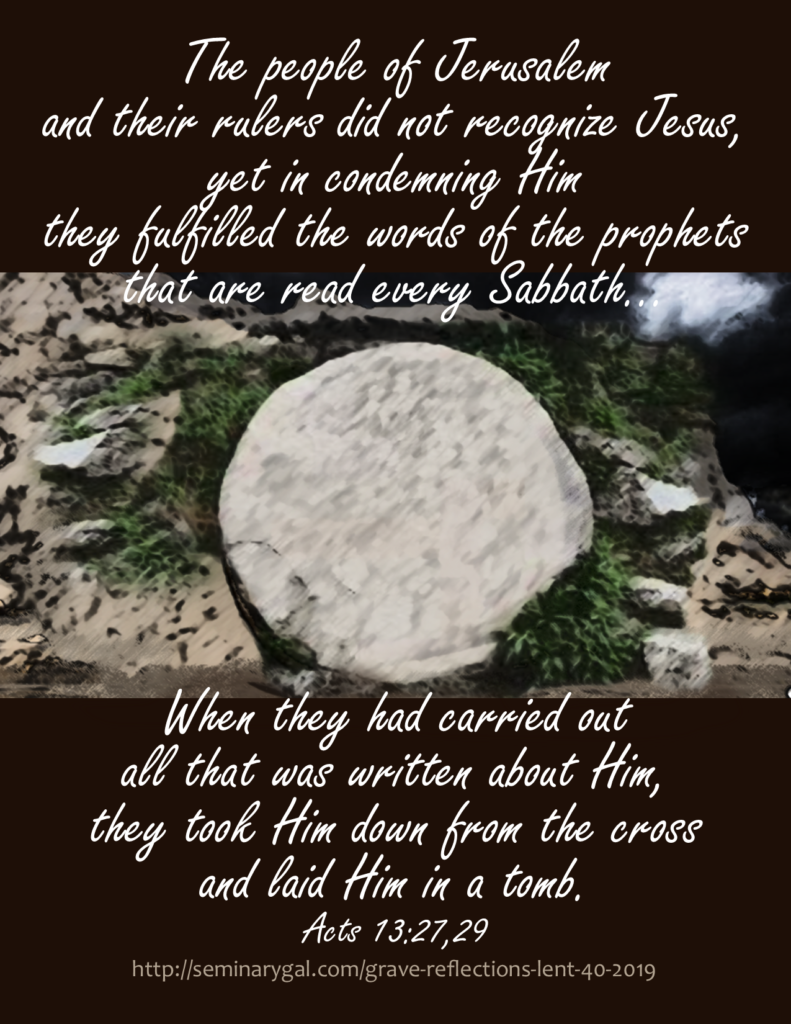
Think about it:
Boiled down to its essence, what is truly Christian faith? It’s what we do with the actual Person, the real work, the true life, and the importantly unique death of Jesus. These are the defining measures of a Christian.
It’s not which Christian church you attend or denomination that church belongs to. It’s not really about church at all. As I re-write this day’s devotional in light of the raging fire which consumed much of the Notre Dame Cathedral in Paris, I am mindful that people appreciate–even cherish–relics and artwork, statues and artifacts, and the architecture of the Cathedral which remains a magnificent achievement of human hands in devotion to God. And yet, these are not what makes a church the Church or a Christian a Christian.

Relics, art, and architecture are works of the material world. The living Church (made up of Christians) stands worlds apart–visible in the material world but the real work in us was done in the spiritual world.
In the silence of the grave, we must consider what it means to be a Christian. I’m rather appalled that so much social media commentary now focuses on assigning certain denominations as having heretical views though they are fully Christian…and other Christians are glossing over heresy to appear open-minded and inclusive.
Notre Dame, being a Catholic church, has flavored some comments with an anti-Catholic sentiment and others an anti-Protestant (especially anti-Baptist) sentiment as tit-for-tat.
I have truly Christian friends who worship at their local parish of the Roman Catholic Church and ones who worship at Baptist, Lutheran, Presbyterian, and nondenominational churches. Maybe it’s time to get back to basics since there are probably frauds in the pews where faithful also attend in most any church. Wheat and the tares.
Today on the church’s calendar, it’s Holy Saturday and Jesus is entombed. On tomorrow’s Easter, the tomb will be empty, and death is defeated… forever.
This happened because Jesus is God, the work He did on the Cross was perfect and is eternal, and His resurrection proves His victory.
Heresies do exist, but there are essentials missing in each heresy. Important essentials like:
- Jesus is Son of Man and fully human.
- Son of God and fully divine since before Creation.
- Both God and man at the same time.
- God Incarnate. Word made flesh.
- The Way, the Truth, and the Life.
- Perfect Sacrifice for Sin because He was sinless.
- Lamb of God who takes away the sin of the world.
- Promised One. Risen One. Messiah. Savior. Redeemer. Deliverer.
- Now add who He will be at His return: Bridegroom of the Church. King of kings. Lord of lords. Judge of the quick and the dead.
False religions do exist and there are both close pretenders (often very nice people) claiming to be Christian (like Mormonism, Jehovah’s Witnesses, Unitarians, and Universalists) and those that reject Christianity wholesale (Islam being dominant and rising).
On the Church calendar, Jesus is in the tomb today, but someday in the days to come, He will return as Judge. Therefore, be careful what you believe about the actual Person, the real work, the true life, and the importantly unique death and resurrection of Jesus.
Thank You, Jesus, that Your Word tells us, “All Scripture is God-breathed (2 Tim. 3:16), and “The word of God is alive and active. Sharper than any double-edged sword, it penetrates even to dividing soul and spirit, joints and marrow; it judges the thoughts and attitudes of the heart. Nothing in all creation is hidden from God’s sight. Everything is uncovered and laid bare before the eyes of him to whom we must give account. Therefore, since we have a great high priest who has ascended into heaven, Jesus the Son of God, let us hold firmly to the faith we profess”. (Hebrews. 4:12-14) Keep us in Your Truth and reveal more of Yourself to us each day. Strengthen us for this hour, we pray in Your precious Name. Thank You, Lord Jesus. Amen.
This is the final offering in our “More to the Easter Story” Lenten Devotionals Series. Tomorrow, there will be an Easter greeting and message. If you received these by logging onto the sidebar of the Seminary Gal Home page or if you have Facebook and you “Liked” my page (Seminary Gal) where they’re always reprinted, I hope you’ll stay on for resuming our Joseph: A Life with Many Colors series which will continue after a short break. I appreciate your encouragement and wish you all a very happy Passover and Easter!
